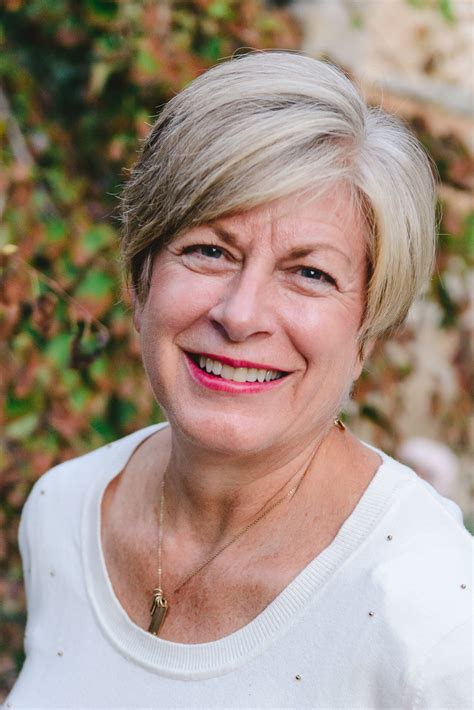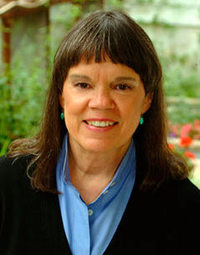A Quote by Jane Pauley
Most of us in the baby-boom generation were raised by full-time mothers. Even as recently as 14 years ago, 6 out of 10 mothers with babies were staying at home. Today that is totally reversed. Does that mean we love our children less than our mothers loved us? No, but it certainly causes a lot of guilt trips.
Related Quotes
Given Freudian assumptions about the nature of children and the biological predestination of mothers, it is unthinkable for mothers voluntarily to leave their babies in others' care, without guilt about the baby's well-being and a sense of self-deprivation. Mothers need their babies for their own mental health, and babies need their mothers for their mental health--a reciprocal and symbiotic relationship.
I'm not saying that all women are blameless - all women are not. There are women with despicable characters who are cruel and terrible and some of them are mothers. But why do we blame our mothers more than our fathers? We let our fathers get away scot-free. We hardly even knew who they were in many cases, given the way this culture raises kids, and they may have been quite cruel. They may even have raped us as children, but even if they raped us, we will blame our mothers for not protecting us instead of blaming our fathers who actually did it.
Generations of women have sacrificed their lives to become their mothers. But we do not have that luxury any more. The world has changed too much to let us have the lives our mothers had. And we can no longer afford the guilt we feel at not being our mothers. We cannot afford any guilt that pulls us back to the past. We have to grow up, whether we want to or not. We have to stop blaming men and mothers and seize every second of our lives with passion. We can no longer afford to waste our creativity. We cannot afford spiritual laziness.
We need money to scale up the services that bring medicine to mothers. The United States government's doing that. There's a global fund that's providing money. mothers2mothers provides for mothers who come in who don't have education, who don't have support. mothers2mothers employs mothers with HIV, mothers who were patients recently in the very same facilities. We take those mothers who were patients who've had their babies, we bring them back, we train them, we pay them, to be health care professionals.
Mothers are the rocks of our families and a foundation in our communities. In gratitude for their generous love, patient counsel, and lifelong support, let us pay respect to the women who carry out the hard work of motherhood with skill and grace, and let us remember those mothers who, though no longer with us, inspire us still.
Mothers who know do less. They permit less of what will not bear good fruit eternally. They allow less media in their homes, less distraction, less activity that draws their children away from their home. Mothers who know are willing to live on less and consume less of the world’s goods in order to spend more time with their children—more time eating together, more time working together, more time reading together, more time talking, laughing, singing, and exemplifying. These mothers choose carefully and do not try to choose it all.
As important as the father is in the life of a child, even he must take second place to mother during the first three years of life.... Consequently, mothers actually have more to do with producing a predisposition toward homosexuality than fathers. Two kinds of mothers are particularly harmful - smother mothers and dominating mothers.
Both at-home and working mothers can overmeet their mothering responsibilities. In order to justify their jobs, working mothers can overnurture, overconnect with, and overschedule their children into activities and classes. Similarly, some at-home mothers,... can make at- home mothering into a bigger deal than it is, over stimulating, overeducating, and overwhelming their children with purposeful attention.
In a famous Middletown study of Muncie, Indiana, in 1924, mothers were asked to rank the qualities they most desire in their children. At the top of the list were conformity and strict obedience. More than fifty years later, when the Middletown survey was replicated, mothers placed autonomy and independence first. The healthiest parenting probably promotes a balance of these qualities in children.
I have two children myself. I always laugh; they have you playing mothers pretty early, us women. You look at the television, the mothers get younger and younger, and the children get older and older, and you start to wonder when these people had these children. Were they breeding when they were 12?
I think we spend a lot of time denying our mothers. We understand other women earlier than we understand our mothers because we're trying so hard to say, "I'm not going to be like my mother" that we blame her for her condition. If we didn't blame her for her condition, we would have to admit that it could happen to us, too. I spent a long time doing that, thinking that my mother's problems were uniquely her fault.
































